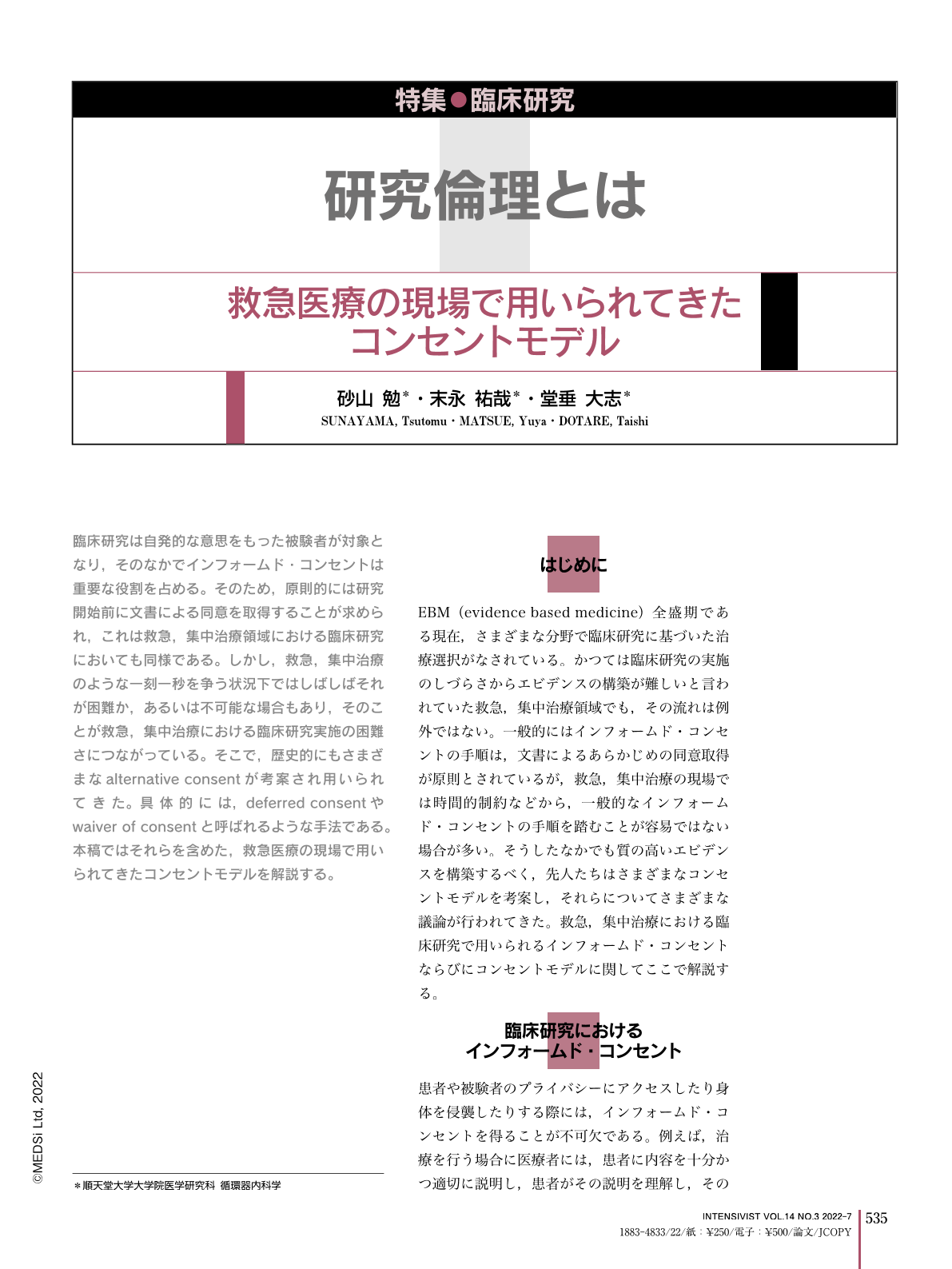Japanese
English
- 有料閲覧
- Abstract 文献概要
- 1ページ目 Look Inside
- 参考文献 Reference
臨床研究は自発的な意思をもった被験者が対象となり,そのなかでインフォームド・コンセントは重要な役割を占める。そのため,原則的には研究開始前に文書による同意を取得することが求められ,これは救急,集中治療領域における臨床研究においても同様である。しかし,救急,集中治療のような一刻一秒を争う状況下ではしばしばそれが困難か,あるいは不可能な場合もあり,そのことが救急,集中治療における臨床研究実施の困難さにつながっている。そこで,歴史的にもさまざまなalternative consentが考案され用いられてきた。具体的には,deferred consentやwaiver of consentと呼ばれるような手法である。本稿ではそれらを含めた,救急医療の現場で用いられてきたコンセントモデルを解説する。
Clinical research involves subjects who have voluntarily given their consent, for which informed consent plays an important role. Therefore, written consent must be obtained before the research begins in principle and this rule is also applied to research in emergency medicine. However, obeying this rule is often difficult or impossible in time-sensitive situations, which can lead to the difficulty in conducting clinical research in emergency medicine. Various alternative consent models have been devised and used in the past. However, those alternative consent models have various problems and have been controversial. As a result, these alternative consent models are now gaining wide acceptance. Specifically, the “deferred consent” method has been widely used but is considered problematic in that it does not guarantee the subject's voluntary participation. Another concept of “waiver of consent” has been also adopted in several clinical trials and has contributed to establishing evidence in emergency medicine. Herein, we introduce consent models that have been used in emergency medicine, including these models, and describe their historical background and discussions.

Copyright © 2022, MEDICAL SCIENCES INTERNATIONAL, LTD. All rights reserved.


